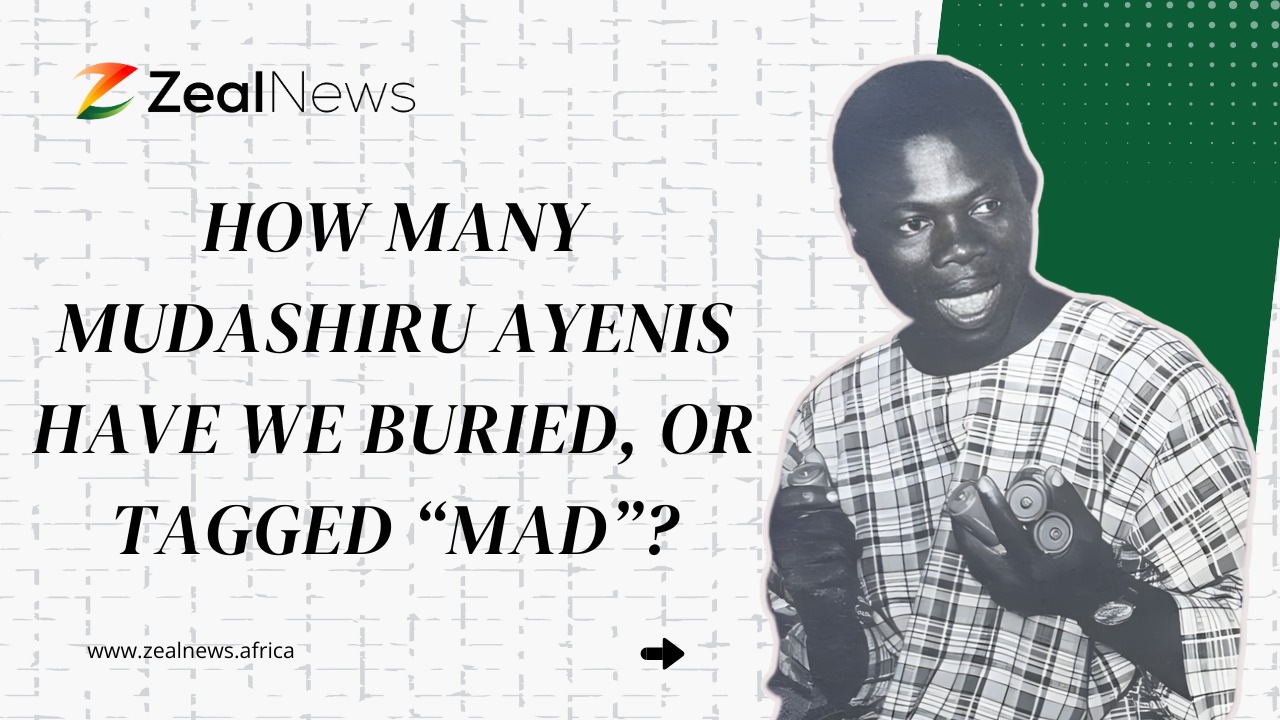From Otedola to Ajibade: Love, Legacy, and the Politics of a Name

Introduction: When a Name Sparks a Nation’s Debate
It began as a quiet update on Instagram. Temi Otedola, daughter of billionaire businessman Femi Otedola and a rising force in Nigeria’s fashion and creative scene, replaced her famous surname with a new one.
Overnight, her profile read Temiloluwa Ajibade. A simple caption, “Mr and Mrs Ajibade,” confirmed what fans already suspected. After a whirlwind of weddings across Monaco, Dubai, and Iceland, Temi had officially embraced her husband’s surname.
On the surface, it was a personal decision, a woman taking her spouse’s name. Yet in Nigeria, where last names are more than identifiers and often carry history, influence, and power, the move set social media ablaze.
To some, it was a gesture of love. To others, it raised uncomfortable questions about feminism, legacy, and identity. Why would Temi, heiress to one of Nigeria’s most recognized families, willingly drop the Otedola name? And what does this say about the shifting balance between personal choice and cultural expectations in today’s society?
This is more than a celebrity story. It is about what a name means, who gets to define its value, and how one woman’s decision pulled the nation into an age-old conversation.
A Fairytale Series of Weddings
Before diving into the cultural weight of Temi’s choice, it is worth remembering the context. Temi Otedola and Mr Eazi, whose real name is Oluwatosin Ajibade, have been one of Nigeria’s most admired couples since they publicly revealed their relationship in 2017. Their romance has been steady and relatively private, marked by a quiet confidence rather than the loud theatrics that often follow celebrity unions.
In May 2025, the couple held a private court wedding in Monaco. It was intimate, elegant, and a sharp contrast to the grandeur many expected. Two months later, they honored tradition with a Yoruba engagement and traditional wedding ceremony in Dubai, blending opulence with cultural symbolism. Finally, in August, they sealed their vows with a white wedding in Iceland, against a backdrop of breathtaking glaciers and serene landscapes. Temi Otedola and Mr Eazi didn’t just get married, they made history. With three weddings across Monaco, Dubai, and Iceland, they fused tradition, luxury, and global flair, turning their love story into a cultural milestone that redefined the Nigerian celebrity wedding playbook.
Every event was carefully curated, yet none of them caused as much buzz as Temi’s eventual name change. For many Nigerians, the real shock was not that she married, but that she seemed willing to set aside the Otedola surname, a name synonymous with wealth, influence, and an undeniable legacy.
The Debate: Love versus Legacy
The reactions were swift and polarized. On one end were admirers who saw Temi’s move as romantic, natural, and deeply personal. After all, countless women around the world adopt their husband’s surname after marriage. Why should Temi be any different?
On the other side were critics who felt disappointed, even betrayed. For them, the Otedola name is more than a family tag. It represents a legacy built by Femi Otedola, a household identity instantly recognized across Nigeria and beyond. By choosing Ajibade, Temi was seen by some as discarding power and visibility that few can ever possess.
Feminists entered the conversation with sharp takes. Some argued that Temi’s decision reinforced patriarchal traditions where women are expected to subsume their identities into their husband’s. Others countered that feminism is, at its core, about choice; and if Temi chose Ajibade freely, that itself is empowering. The divide illustrated how personal acts often get entangled in societal expectations.
Why Names Carry Extra Weight in Nigeria
To understand why Temi’s name change shook so many, one must consider the cultural significance of surnames in Nigeria. In a society where family names often symbolize heritage, wealth, lineage, or even tribal identity, a name can open doors or close them. The Otedola surname is not just a label; it is a brand. It is instantly associated with influence, opportunity, and affluence.
For women in Nigeria, the decision to change a surname after marriage is rarely simple. Many weigh cultural norms against professional identity. A surname might tie a woman to her father’s legacy, while adopting her husband’s name might symbolize unity, respect, or even social acceptance. In elite circles, the stakes are even higher. To drop a powerful surname is to make a statement, whether intended or not.
Temi’s case becomes particularly fascinating because she herself is not only “the daughter of Otedola.” She has built her own identity as a fashion influencer, actress, and entrepreneur. Yet, her brand has long been amplified by the Otedola name. Switching to Ajibade creates a new dynamic, one where her individuality will either shine on its own merit or be forever debated in relation to what she left behind.
Feminism, Culture, and the Surname Question
The surname debate is not unique to Temi Otedola. Across the globe, women are rethinking what to do with their last names after marriage. Some hyphenate. Some keep their maiden names. Some even create entirely new surnames as a couple. In Nigeria, however, traditional expectations remain strong. Many communities view adopting a husband’s name as a sign of respect and submission, reinforcing the notion that marriage transforms a woman’s identity.
Yet modern feminism complicates this narrative. For some feminists, rejecting the expectation is the ultimate act of liberation. For others, true empowerment lies in the freedom to choose — whether that choice is to keep, hyphenate, or change.
Temi’s case sits at this intersection. She grew up with the privilege of a powerful name, but also the weight of being defined by it. By choosing Ajibade, perhaps she sought not erasure, but transformation, moving from being “Femi Otedola’s daughter” to being recognized as Temiloluwa Ajibade, wife, partner, and woman in her own right.
The Personal versus the Public
There is also the question of privacy. For many women, changing a surname after marriage is a family matter. But for celebrities, every choice becomes public property. Temi’s Instagram update was not just a personal decision; it was a headline. Fans dissected it, blogs amplified it, and opinion pieces flooded the internet.
What this reveals is how society often denies women the right to simple choices without attaching symbolic meaning. If Temi had kept her father’s name, critics would still have had something to say. By changing it, she faces a different set of critiques. In both scenarios, her name becomes less about her and more about everyone else’s interpretation.
What It Means for Temi’s Brand and Career
Beyond the symbolism, there are practical questions. Will Temi’s career as an influencer and actress benefit or suffer from this shift? The Otedola name guaranteed visibility, but aligning with Ajibade ties her identity to Mr Eazi, who himself has a global music brand. In a way, it creates a new power couple dynamic, one that blends music, fashion, and business across continents.
For younger women who admire Temi, her decision also sends a message: personal identity is fluid, and it does not have to be dictated solely by family legacy or societal pressure. Whether this strengthens or weakens her influence remains to be seen, but the conversation it sparked is already shaping narratives about gender, power, and choice in Nigeria.
Conclusion: The Power of a Name
In the end, Temi Otedola’s transformation into Temi Ajibade is more than a celebrity update. It is a mirror reflecting the complexities of culture, feminism, love, and legacy. It forces Nigerians to ask: What does a name mean? Is it heritage, brand, or simply a personal choice?
For Temi, perhaps the answer is simple. She married the man she loves, and she chose to share his name. But for a society still wrestling with the balance between tradition and modernity, her decision will continue to provoke debate.
Names may change, but what they represent endures. Temi may no longer be Otedola in the public eye, but her story ensures that the conversation about identity and choice in Nigeria is far from over.
You may also like...
Be Honest: Are You Actually Funny or Just Loud? Find Your Humour Type

Are you actually funny or just loud? Discover your humour type—from sarcastic to accidental comedian—and learn how your ...
Ndidi's Besiktas Revelation: Why He Chose Turkey Over Man Utd Dreams

Super Eagles midfielder Wilfred Ndidi explained his decision to join Besiktas, citing the club's appealing project, stro...
Tom Hardy Returns! Venom Roars Back to the Big Screen in New Movie!

Two years after its last cinematic outing, Venom is set to return in an animated feature film from Sony Pictures Animati...
Marvel Shakes Up Spider-Verse with Nicolas Cage's Groundbreaking New Series!

Nicolas Cage is set to star as Ben Reilly in the upcoming live-action 'Spider-Noir' series on Prime Video, moving beyond...
Bad Bunny's 'DtMF' Dominates Hot 100 with Chart-Topping Power!

A recent 'Ask Billboard' mailbag delves into Hot 100 chart specifics, featuring Bad Bunny's "DtMF" and Ella Langley's "C...
Shakira Stuns Mexico City with Massive Free Concert Announcement!

Shakira is set to conclude her historic Mexican tour trek with a free concert at Mexico City's iconic Zócalo on March 1,...
Glen Powell Reveals His Unexpected Favorite Christopher Nolan Film

A24's dark comedy "How to Make a Killing" is hitting theaters, starring Glen Powell, Topher Grace, and Jessica Henwick. ...
Wizkid & Pharrell Set New Male Style Standard in Leather and Satin Showdown

Wizkid and Pharrell Williams have sparked widespread speculation with a new, cryptic Instagram post. While the possibili...






